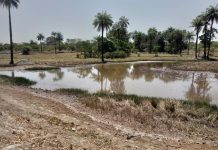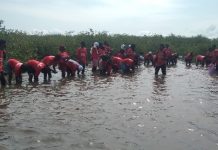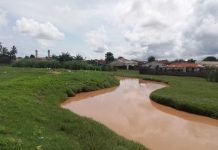By Nelson Manneh
Despite a longstanding government ban on charcoal production, many rural communities in The Gambia, especially in the Central River Region (CRR), continue to engage in large-scale charcoal burning as a vital economic activity. The practice, though officially prohibited under the Forest Act of 1998, remains widespread due to limited alternative income sources in these areas.
The government’s ban, first introduced in 1980 and reinforced by the 1998 Forest Act, prohibits domestic charcoal production but permits importation and sale only when accompanied by official documentation from the country of origin. While intended to protect the country’s forests and promote sustainable fuel sources, enforcement has been a challenge, especially in rural regions where charcoal is a primary fuel source for ironing and small-scale cooking.
Musa Balder, a native of Kiang Kabada in CRR, explained the economic realities that drive continued charcoal burning. “If the authorities want to ban charcoal production on a large scale, they must provide alternatives,” he said. “Our young people have no other economic activities to engage in, so charcoal burning remains their main livelihood,” Balder added that his community lacks gardens, skill training centres, and other sources of income besides charcoal and firewood production.
Similar sentiments were echoed by Nabou Jallow, a mother of five, who lamented the lack of economic opportunities. “During the dry season, we have no other source of income,” she said. “Two of my children have dropped out of school because we cannot afford their fees. They now collect firewood and burn charcoal to survive.” Jallow appealed to authorities to establish economic avenues such as gardens and workshops, before enforcing a ban on charcoal production. “We understand the importance of trees, but we also need to survive.”
Our research indicates that the West Coast Region, particularly areas like Foni Bintang and Kafuta Tumbung, is a major centre for charcoal production. Other regions, especially those bordering Senegal, contribute as well. The Greater Banjul Area relies heavily on charcoal for energy, though it is not a production zone, and faces shortages that highlight the country’s overall dependence on charcoal.
The charcoal trade is not without consequences. Illegal production contributes to deforestation, threatening biodiversity and accelerating soil erosion. It also impacts public health, as the burning process releases harmful smoke and pollutants. Despite these known issues, rural communities continue to rely on charcoal as a critical income source.
The border communities around Casamance, Senegal, once heavily involved in charcoal production during dry seasons, have seen a decline since the Senegalese government’s military operations in 2022 restricted such activities. Famara Colley from Kampanti Village noted, “Our communities often depend on cross-border economic activities. Since the raids, charcoal burning has significantly decreased but still exists on a smaller scale.”
Landing Colley of Kusamai Village voiced frustration over the lack of government support in rural areas. “Entrepreneurship and skills training programs are concentrated in urban regions,” he said. “We have a right to survive, but without training or startup capital, what options do we have other than the forest?”
The government faces a difficult balancing act: enforcing the ban to protect the environment while addressing the urgent economic needs of rural Gambians who depend on charcoal production. Until viable alternatives and sustainable livelihoods are developed and accessible, many communities will likely continue to defy the ban, prioritising survival amid limited choices.
The story of charcoal in The Gambia remains one of tension—between economic survival and environmental preservation, between policy and practice, and between the urgent needs of today and the sustainability of tomorrow.



















